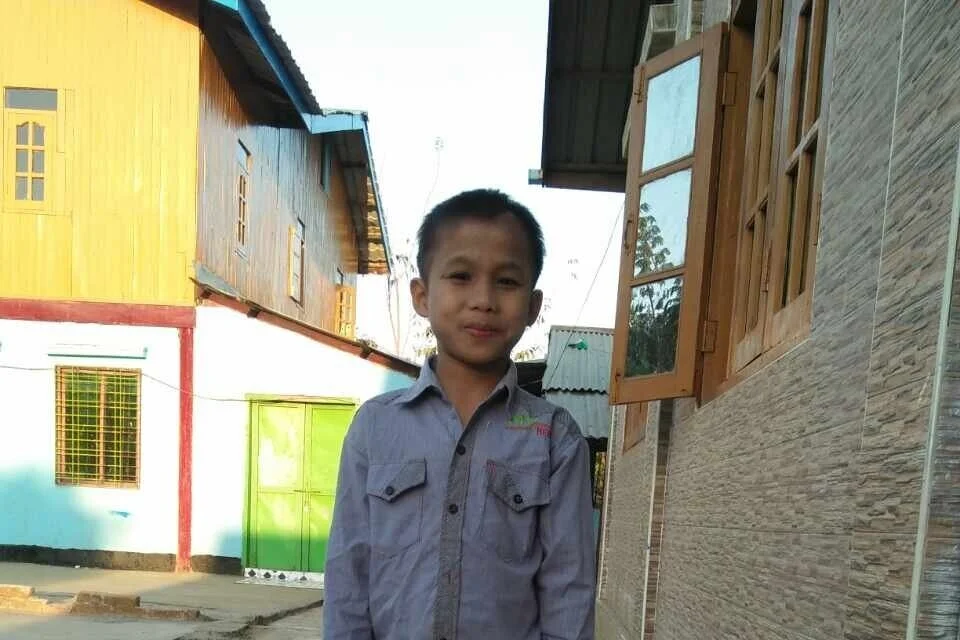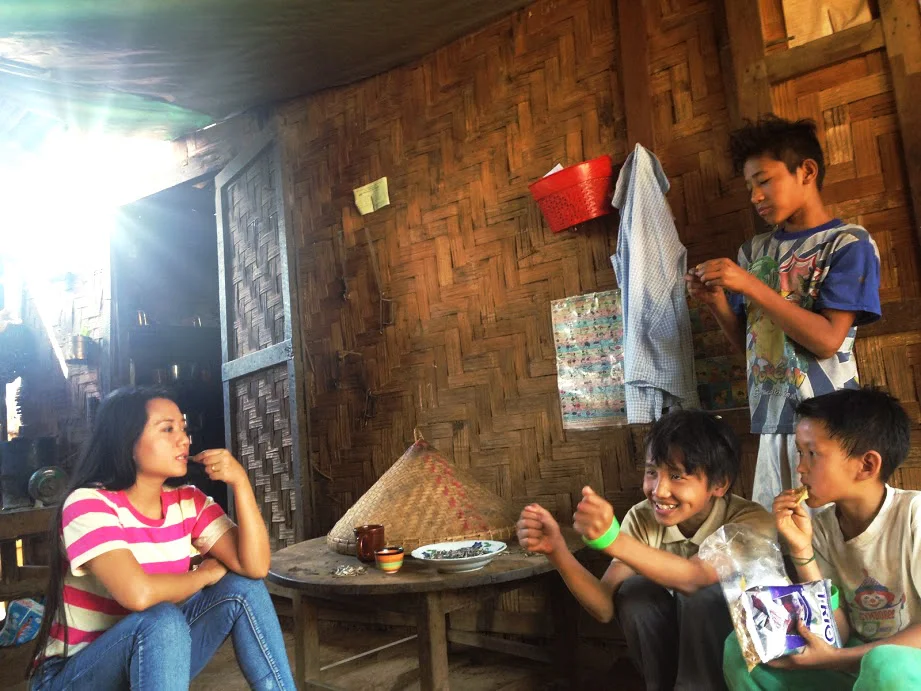Blessing at home with her Mother and sisters
Blessing’s Story
At six years old, Blessing was the eldest of three daughters. She came from a remote village in Layshi township, which is completely surrounded by beautiful mountains. There is a reasonable level of education available in the village (this year Sagaing Division had a higher Grade 10 pass rate than the national average), and children there are able to attend both primary and secondary school. Despite this, parents hold a deep-rooted belief that schools in the larger cities are better. Because of this, children are often sent away from their families to live in either Buddhist monasteries or Christian orphanages. It is common for one child from each family to be sent away, and Blessing was one of these children.
One day, a man visited Blessing’s village to recruit children to be sent to orphanages in Yangon (read more about orphanage trafficking). Many families are seduced by the promise of a good education with free board and lodging, and give up their children hoping that it will lead to them having a better life. In most cases the opposite is true. The man who visited Blessing’s village collected ten children that day, as well as Blessing. Blessing was separated from her parents and two younger sisters. As she left, her father gave her some new clothes. Both he and Blessing were optimistic about what her new life would be like in Yangon.
Blessing with her youngest sister
When Blessing was admitted to the orphanage, she struggled to transition to her new life, and began to realise that it was harder to be away from her community than she thought it would be. She missed the food from her home, and her family, and she was forced to repeat a year in school as no one had arranged a school transfer certificate for her. Two years went by, and Blessing had almost completely forgotten her ethnic language.
Kinnected social workers met Blessing as they came to work alongside the orphanage she had been placed in. They took Blessing back during the summer holidays to visit her family, and conducted seminars in her village to bring awareness about the disadvantages of living in orphanages and the effects such a life would have on child development. Blessing’s mother began to worry about her daughter. She said, “If my daughter gets sick, who is going to care for her? Who is going to make sure my daughter is under her blanket at night?” As a result of these seminars, Blessing’s mother decided that her daughter would remain at home.
Blessing in her school uniform
Blessing has been back permanently with her family for over a year. She is happy to be home, and now attends school in the village. She helps her mother with chores and in taking care of her younger sisters. She has regained her ability to speak her ethnic language fluently and is very sociable, having made friends in the community! Kinnected Myanmar is currently providing school support for Blessing and is continuing to monitor her progress for the time being.
Support given to orphanages from well-meaning people has created an orphanage ‘industry’ that exploits local communities and families in Myanmar. The best way to help prevent families like Blessing’s from being taken advantage of by child recruiters is to advocate for family care, and dissuade others from supporting residential institutions. Children belong in families, where they can receive love and support throughout their lives. We all have a role to play in preventing family separation.
Blessing with her sisters and friend









